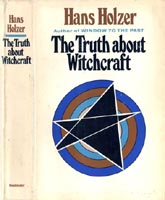
Über die "Wiccan Rede"
"Rede" ist ein mittelenglischer (12. bis Mitte des 15. Jahrhunderts) Begriff, der in etwa "jemanden etwas raten", "erklären", "interpretieren" oder "beratschlagen" bedeutet.
Weder im "Ye Bok of Ye Art Magical", noch in Text A, C oder dem ersten "offiziellen" Book of Shadows 1953 kommt die "Wiccan Rede" vor.
Das Konzept findet sich erstmals im Book of Shadows von 1957 in den "Laws":
"So it is Aredan that none shall use the Art in any way to do ill to any, however much they have injured us.And for long we have obeyed this law, "Harm none" and nowtimes many believe we exist not. So it be Aredan that this law shall still continue to help us in our plight. No one, however great an injury or injustice they receive, may use the Art in any to do ill or harm any."
Erst in den 70er Jahren des letzten Jahrhunderts findet man die "Wiccan Rede", in der allgemein bekannten langen Version, in den "Book of Shadows".
Öffentlich taucht das Konzept im Wicca-Kontext in Gerald B. Gardners "The Meaning of Witchcraft" (1959, Kapitel 7 "Magic Thinking", Seite 127) auf (zu den geschichtlichen Quellen siehe ganz unten in diesem Artikel):
"It is an old saying that "The difference between orthodoxy and heterodoxy is that orthodoxy is my doxy and heterodoxy os someone else's doxy." John Calvin's doxy (a most ill-favoured hag) was embodied in his famous dictum, "All Pleasure is sin." Nowadays most people modify that a little, saying "My pleasures are innocent, everybody else's pleasures are sin." Witches cannot sympathise with this mentality. They are inclined to the morality of the legendary Good King Pausol, "Do what you like so long as you harm no one". But they believe a certain law to be important, "You must not use magic for anything which will cause harm to anyone, and if, to prevent a greater wrong being done, you must discommode someone, you must do it only in a way which will abate the harm. This involves every magical action being discussed first, to see it can do no damage, and this induces a habit of mind to consider well the results of one's actions, especially upon others."
Die Kurzform der "Rede" ("Eight words the Wiccan Rede fulfil, An' it harm none, do what ye will.") sah am 03.10.1964 zum ersten Mal das Licht der Öffentlichkeit. Doreen Valiente hielt einen Vortrag im Rahmen eines Hexen-Treffens ("Pentagram Dinner"), welches von Gerard Noel, dem Herausgeber des englischen "Pentagram", einer vierteljährlich erscheinenden Newsletter, veranstaltet wurde ( "Demanding tolerance between covens as well as toward the outside world, Doreen spoke the Anglo-Saxon witch formula called the Wiccan Rede or wise teaching: "Eight words the Wiccan Rede fulfil, An' it harm none, do what ye will.", abgedruckt in Hanz Holzer's Buch "The Truth About Witchcraft", 1969).

Die acht Worte wurden zuerst in der 2. Ausgabe des "Pentagram" (November 1964) in dem Artikel "Fifty At 'Pentagram' Dinner" von Justine Glass auf Seite 7 veröffentlicht:

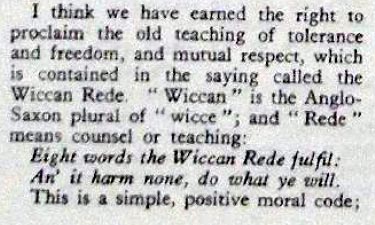 |
 |
Joseph B. Wilson war Herausgeber von "Waxing Moon", des ersten amerikanischen Hexen-Magazins (wobei Magazin übertrieben ist), Mitte der 60er Jahre. Er veröffentlichte auch Artikel aus dem Pentagram, darunter auch 1965/1966 die Kurzform der Wiccan Rede.
 |
In ihrem Buch "Witchcraft, The Sixth Sense", Seite 58 schrieb Justine Glass 1965: "The other, only slightly less important belief of the witches is in hurtlessness; an article of faith also of the ancient Huna religion, which is thought to have originated in Africa and traveled across the world, by way of Egypt and India to Hawaii. The kahunas taught that the only sin was to hurt – either oneself or someone else. The Wiccan Rede (i.e. Counsel or advice of the Wise Ones) is: 'An ye harm no one, do what ye will.'" |
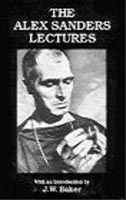 |
1971 verfasste Alex Sanders eine Reihe von Vorlesungen (die 1984 als "The Alex Sanders Lectures", herausgegeben von J. Baker, veröffentlicht wurden). Er schrieb auf Seite 67 in dem Kapitel über das Book of Shadows und die Erstgrad-Initiation: "The Book is closed in front of him and he is shown the cover, on which is often written the motto of Wicca: "An it harm none - do what ye will."" |
 |
1973 erscheint Doreen Valiente's Buch "An ABC of Witchcraft - Past and Present". Auf Seite 55 steht: "Witches do not believe that true morality consists of observing a list of thou-shalt-nots. Their morality can be summed up in one sentence, "Do what you will, so long as it harms none." This does not mean, however, that witches are pacifists. They say that to allow wrong to flourish unchecked is not 'harming none'. On the contrary, it is harming everybody." |
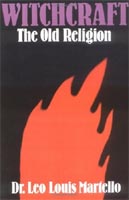 |
Die zweite amerikanische Quelle ist Dr. Leo Louis Martello. In seinem Buch "Witchcraft: The Old Religion", veröffentlicht 1973, schreibt er auf Seite 42: "Witch credo 'And ye harm none do what thou wilt'". Diese Passage entstammt einem Artikel aus "The Villanovan, the newspaper of the Students Union of the Catholic Villanova University in Pennsylvania, USA" vom 15.03.1973. |
In der Ausgabe Vol. III, No. 69 (Ostara 1975) des amerikanischen Green Egg Magazins (gab es bis 2001 und jetzt wieder als E-Zine) wird der Artikel "Wicca-Pagan Potpurri" von Gwen Thompson veröffentlicht. Hier der wichtige Teil:
Wiccan-Pagan Potpourri
by LADY GWEN, "Welsh Tradition Wicca"
...
Our own particular form of the Wiccan Rede is that which was passed on to her heirs by Adriana Porter, who was well into her nineties when she crossed over into the Summerland in the year 1946. This Rede in its original form is as follows:
REDE OF THE WICCAE
(Being knowne as the counsel of the Wise Ones)
1. Bide the Wiccan laws ye must in perfect love an perfect trust.
2. Live an let live -fairly take an fairly give.
3. Cast the Circle thrice about to keep all evil spirits out.
4. To bind the spell every time, let the spell be spake In rhyme.
5. Soft of eye an light of touch -speak little, listen much.
6. Deosil go by the waxing Moon -sing an dance the Wiccan rune.
7. Widdershins go when the Moon doth wane, an the Werewolf howls by the dread Wolfsbane.
8. When the Lady's Moon is new, kiss the hand to her times two.
9. When the Moon rides at her peak, then your heart's desire seek.
10. Heed the Northwind's mighty gale -lock the door and drop the sail.
11. When the wind comes from the South, love will kiss thee on the mouth.
12. When the wind blows from the East, expect the new and set the feast
13. When the West wind blows o'er thee, departed spirits restless be.
14. Nine woods in the Cauldron go -burn them quick an burn them slow.
15. Elder be ye Lady's tree -burn it not or cursed ye'll be.
16. When the Wheel begins to turn -let the Beltane fires burn.
17. When the Wheel has turned a Yule, light the Log an let Pan rule.
18. Heed ye flower, bush an tree -by the Lady blessed be.
19. Where the rippling waters go, cast a stone an truth ye'll know.
20. When ye have need. hearken not to other's greed.
21. With the fool no season spend or be counted as his friend.
22. Merry meet an merry part -bright the cheeks an warm the heart.
23. Mind the Threefold Law ye should -three times bad an three times qood.
24. When misfortune is enow, wear the blue star on thy brow.
25. True in love ever be unless thy lover's false to thee.
26. Eight words the Wiccan Rede fulfill -an it harm none, do what ye will.
...
Adriana Porter war die Großmutter väterlicherseits von Lady Gwen Thompson (1928-1986) und verstarb nach ihren Angaben 1946.Thompson schreibt also, dass die "Wiccan Rede" Adriana Porter (oder deren Vorfahren) zuzuschreiben sei. Nur 1946 existierte Wicca noch gar nicht. Darüber hinaus enthält der Text Anleihen von Aleister Crowley. Gwen Thompson aus New Haven, Connecticut (USA), war eine Hexe aus einer Familientradition (Hereditary Witch). Woher kannte sie die Wiccan Rede? Joseph B. Wilson, der oben schon erwähnte Herausgeber des "Waxing Moon" stand mit Thompson in Korrespondenz. Nach seinen Angaben gehörte sie zu den ersten, die sich regelmäßig mit ihm austauschten. Ebenso war sie Abonnentin des "Waxing Moon". Es ist daher anzunehmen, dass Thompson sich die Geschichte mit ihrer Großmutter ausgedacht hat, um ihrer Linie Geltung zu verschaffen (wie leider so oft).
In ihrem Buch "Witchcraft for Tomorrow" schreibt Doreen Valiente 1978 auf Seite 41:
 |
"This idea has been put into a rhymed couplet called the Wiccan Rede: Eight Words the Wiccan Rede fulfil: An it harm none, do what ye will. This can be expressed in more modern English as follows: Eight words the Witches' Creed fulfil: If it harms none, do what you will." |
Geschichtlicher Hintergrund:
| Der französische Renaissance Autor François Rabelais (geb. 1493 in La Devinière bei Chinon/Touraine, gest. 9. April 1553 in Paris) veröffentlichte 1532 den ersten Teil des fünfteiligen utopisch-satirischen Romanzyklus "Gargantua und Pantagruel" ("Les horribles et épouvantables faits et prouesses du très renommé Pantagruel, Roi des Dipsodes, fils du grand géant Gargantua. Composés nouvellement par maître Alcofrybas Nasier", auf deutsch "Die schrecklichen und erschreckenden Vollbringungen und Heldentaten des sehr berühmten Pantagruel, König der Dipsoden, Sohn des großen Riesen Gargantua. Kürzlich verfasst von Magister Alcofrybas Nasier"). |  |
1534 folgt der 2. Teil, "La Vie très horrifique du grand Gargantua, père de Pantagruel", zu deutsch "Das unschätzbare Leben des großen Gargantua, des Vaters des Pantagruel" , der die Vorgeschichte zum 1. Teil darstellt. In Kapitel 57 schreibt Rabelais: "fay çe que vouldras"
"Chapter 1.LVII.—How the Thelemites were governed, and of their manner of living.
All their life was spent not in laws, statutes, or rules, but according to their own free will and pleasure. They rose out of their beds when they thought good; they did eat, drink, labour, sleep, when they had a mind to it and were disposed for it. None did awake them, none did offer to constrain them to eat, drink, nor to do any other thing; for so had Gargantua established it. In all their rule and strictest tie of their order there was but this one clause to be observed,
Do What Thou Wilt;
because men that are free, well-born, well-bred, and conversant in honest companies, have naturally an instinct and spur that prompteth them unto virtuous actions, and withdraws them from vice, which is called honour. Those same men, when by base subjection and constraint they are brought under and kept down, turn aside from that noble disposition by which they formerly were inclined to virtue, to shake off and break that bond of servitude wherein they are so tyrannously enslaved; for it is agreeable with the nature of man to long after things forbidden and to desire what is denied us."
Rabelais Geschichte ist als sozialsatirische Kritik zu verstehen.
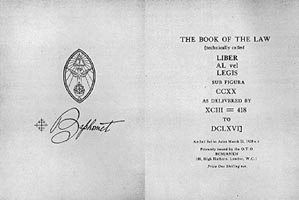 |
Am 08.04.1904 greift Aleister Crowley diesen Satz im Zusammenhang mit okkulter Philosophie wieder auf: Liber AL vel Legis, sub figura CCXX, as delivered by XCIII = 418 to DCLXVI (Kapitel 1): 40. Who calls us Thelemites will do no wrong, if he look but close into the word. For there are therein Three Grades, the Hermit, and the Lover, and the man of Earth. Do what thou wilt shall be the whole of the Law. |
Der Pariser Schriftsteller Pierre Louÿs (1870-1925) veröffentlicht seine Novelle "Les Aventures du Roi Pausole" (The Adventures of King Pausole) bei Liveright Publishing Co. im Jahr 1901. In der Geschichte geht es um einen König, der 1000 Frauen hat und an die sexuelle Freiheit für jeden Einzelnen glaubt. Deswegen reduziert er die Regeln auf:
 |
By dint of repeatedly simplifying the Book of Customs inherited from his ancestors, Pausole had finally enacted a code which consisted of but two articles and thus possessed the unique distinction of being intelligible to the populace-at-large. Here it is in its entirety: "I. Do no wrong to thy neighbor. II. Observing this, do as thou pleasest." Gardner veränderte dieses "Gesetz" (er bezog sich ja auf den "Good King Pausol") in "The Meaning of Witchcraft" in: "Do what you like so long as you harm no one" |
Ob sich Gardner darüber bewusst war, dass es sich bei dem "Gesetz" von Pierre Louÿs um ein sexualethisches Statement handelte, ist nicht bekannt.
| Eine weitere Quelle könnte "Tractatus in epistulam Ioannis ad Parthos" (Tractates on the First Epistle of John) aus dem Jahr 407-409 von Augustinus von Hippo (geb. 13. November 354 in Thagaste in Numidien, heute Souk Ahras in Algerien;, gest. 28. August 430 in Hippo Regius in Numidien, heute Annaba in Algerien) sein. Er war ein christlicher Kirchenlehrer und Philosoph an der Zeitenwende zwischen Antike und Mittelalter. In HOMILY VII: 1 Johannes IV. kann man lesen: |
|
8. This we have said in the case where the things done are similar. In the case where they are diverse, we find a man by charity made fierce; and by iniquity made winningly gentle. A father beats a boy, and a boystealer caresses. If thou name the two things, blows and caresses, who would not choose the caresses, and decline the blows? If thou mark the persons, it is charity that beats, iniquity that caresses. See what we are insisting upon; that the deeds of men are only discerned by the root of charity. For many things may be done that have a good appearance, and yet proceed not from the root of charity. For thorns also have flowers: some actions truly seem rough, seem savage; howbeit they are done for discipline at the bidding of charity. Once for all, then, a short precept is given thee: Love, and do what thou wilt: whether thou hold thy peace, through love hold thy peace; whether thou cry out, through love cry out; whether thou correct, through love correct; whether thou spare, through love do thou spare: let the root of love be within, of this root can nothing spring but what is good.
Es wird sich wohl nie komplett aufklären lassen, welche Quellen Gardner tatsächlich verwendet hat oder ob die Langfassung der "Rede" aus der Feder von Doreen Valiente stammt.
Die "Rede" ist nicht so zu verstehen, dass man als Wicca niemanden schaden darf. Diese Interpretation kam erst in den 80er Jahren auf. Auch Wicca sind Menschen, und reagieren wie normale Menschen. Gardner schrieb zutreffend in "The Meaning of Witchcraft": "They are inclined to the morality of the legendary Good King Pausol" - "sie tendieren zur Moral des guten Königs Pausol". D.h., es wird immer eine Güterabwägung vor jedem Arbeitsritual stattfinden.